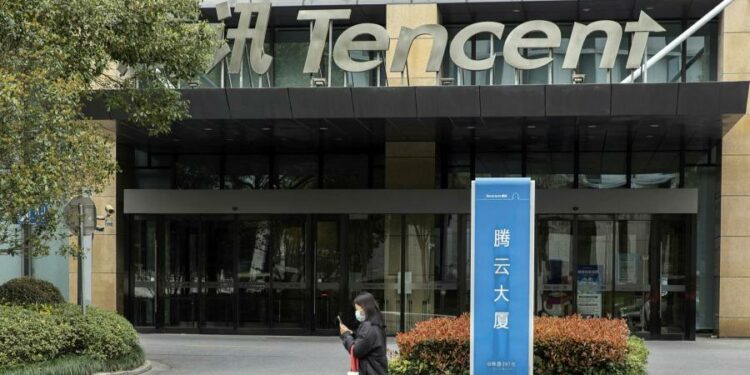Chinese tech group Tencent reported its slowest revenue growth on record after Beijing’s sweeping regulatory crackdown forced the company to divert resources away from game development and the advertising market slowed.
The group’s third-quarter revenue climbed 8 per cent from a year ago to Rmb144.2bn ($22.6bn), the weakest pace since Tencent listed in 2004.
Beijing introduced a barrage of regulations last year, including new rules restricting children to only about three hours of gaming a week. While Tencent has said its reliance on younger people was limited, James Mitchell, Tencent’s chief strategy officer, said on Wednesday the process of complying, and restricting the access of minors to its games, had hit revenue growth.
“Some of our game teams were focused on implementing [regulations] . . . rather than creating new content for games,” Mitchell said.
Domestic gaming revenue edged up by just 1 per cent in the final three months of last year, down from 5 per cent in the previous quarter.
Tencent’s results were also hurt by a softer online advertising market due to a combination of a wider Chinese property slowdown and as sectors from education to technology trimmed their spending. Ad revenue dropped 13 per cent in the quarter to Rmb21.5bn from a year ago.
“Online advertising was badly hit by regulatory tightening of the education and game sectors,” said Ke Yan, an analyst with DZT Research who publishes on the Smartkarma platform.
Despite slower revenue growth, Tencent’s net profit climbed 60 per cent to Rmb94.9bn — a figure that was helped as the company booked a gain from divesting its stake in Chinese ecommerce group JD.com during the quarter.
Bo Pei, a tech analyst at US Tiger Securities, said the slowdown in revenues was expected given mounting challenges the US economy faces. However, he added that “a recovery [for Tencent in the second half] is very realistic. More supportive policies should help drive macro improvements in China throughout the year.”
As it seeks to adapt to the regulatory changes, Tencent said it was committed to achieving more sustainable growth.
“For several years industry participants have overemphasised zero sum competition, aggressive marketing, reckless expansion and short-term growth,” said Martin Lau, the company’s president. “As a result, the industry’s growth has become frothy and unhealthy.”
Tencent executives also said they expected to hire fewer employees this year, while staff in unprofitable businesses would be moved to other parts of the company.
Tencent’s executives were asked whether WeChat Pay, which along with Alibaba’s Alipay, is a major force in China’s mobile payments market, would have to be incorporated into a newly created financial holding company. It is an outcome that analysts say could hurt Tencent’s profits.
“We have been continuously exploring the establishment of a financial holding company and looking at the regulation in respect to that . . . and whether we would be required to do that,” Lau said.
Tencent will pay out a final dividend of HK$1.60 (US$0.20) a share.











